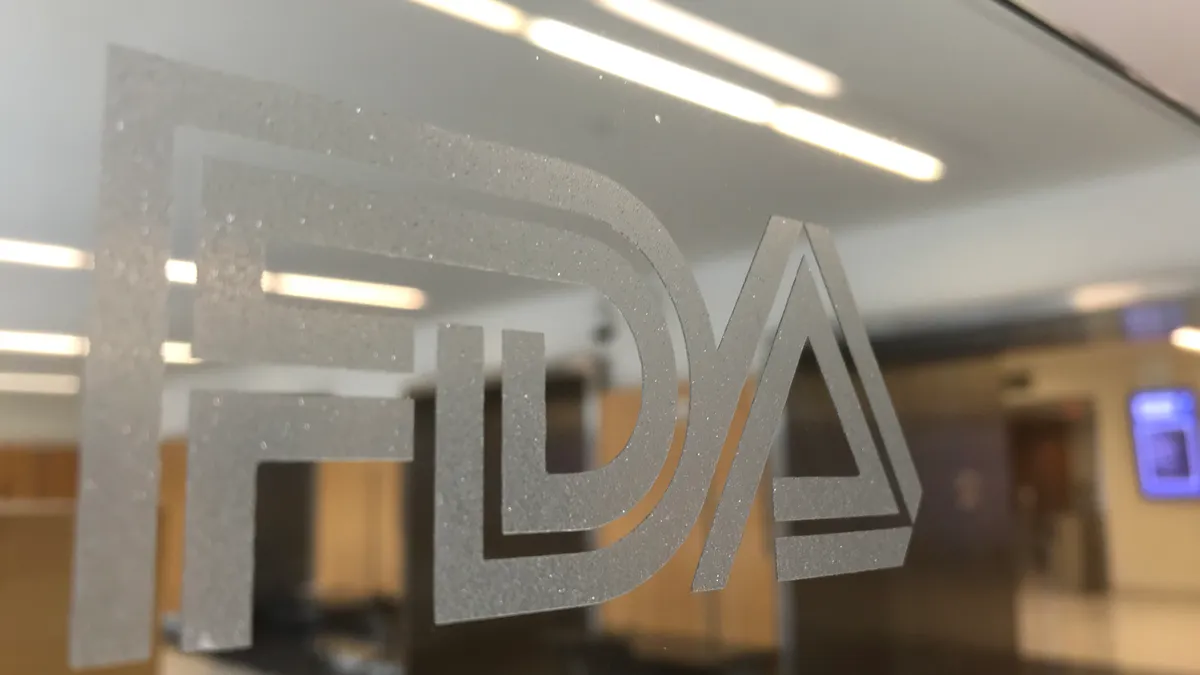Dive Brief:
-
FDA shared a new COVID-19 guidance document with medical device manufacturers Wednesday detailing when and how they need to notify the agency about changes that could affect availability of their products.
-
Under the CARES Act signed into law in late March, producers of devices critical to a public health emergency or otherwise deemed important by the Secretary of Health and Human Services need to notify the Center for Devices and Radiological Health of an upcoming manufacturing interruption or discontinuation.
-
The final guidance posted by FDA outlines what the legislative change will mean in practice, explaining who needs to file notifications and how they should do so.
Dive Insight:
Whereas FDA has authority under the Food and Drug Administration Safety and Innovation Act of 2012 (FDASIA) to collect certain information to help prevent or mitigate drug shortages, regulators have lacked a similar capability on the medical devices front.
The coronavirus crisis has increased the necessity for reliable streams of medical devices including face masks, diagnostics and ventilators. Early on in the U.S. response to the crisis, FDA said it was proactively monitoring manufacturers that may be affected by supply chain disruptions in China.
At the time, the agency reminded stakeholders no law existed requiring device makers to disclose circumstances that could result in a shortage, nor respond to FDA's information requests about potential supply chain disruptions. FDA explicitly sought authority for such requirements in its 2021 budget justification.
About a month later, Congress included provisions in the CARES Act allowing temporary changes to the Federal Food, Drug, and Cosmetic Act intended to help forewarn FDA about supply disruptions that could hinder management of the viral outbreak.
FDA’s guidance unpacks the implications of the legislation for industry. The agency said the reporting rule applies to manufacturers of ventilators and thermometers cleared for sale via the 510(k) pathway, but not to producers of unauthorized devices granted enforcement discretion during the crisis. In assessing whether a particular device is subject to the rules, FDA wants companies to consider whether it is "life-supporting" or "life-sustaining" or in increased demand during the pandemic.
Manufacturers of medical devices subject to the reporting requirement should notify FDA of a discontinuation or interruption within seven calendar days of the disruption occurring. The deadline stems from FDA’s interpretation of the CARES Act requirement for companies to send a notification “as soon as is practicable.” A manufacturer should only consider internal capacity, not industry-wide availability, when deciding if a change amounts to a “meaningful disruption” that needs reporting.
The guidance includes an example notification featuring the sort of information companies should share in their filings. Details requested by FDA include the reasons for the disruption to supply, the impact of the pandemic on the company’s ability to make and ship the device, and proposals for how the agency can help to mitigate the shortage.
FDA is discouraging manufacturers from waiting until they have all the information about a supply disruption before filing a notification. Rather, an initial notification should be sent to FDA as soon as possible, with additions as more information becomes available.
The guidance calls for ongoing communication beyond the initial notification. FDA wants companies that suffer interruptions to production to update regulators on the situation every two weeks from the initial notification. The agency expects manufacturers to continue filing updates every two weeks until the shortage risk has been resolved, thereby ensuring it always has up-to-date information.
FDA intends to keep the reporting requirement in place until the end of the coronavirus public health emergency.













